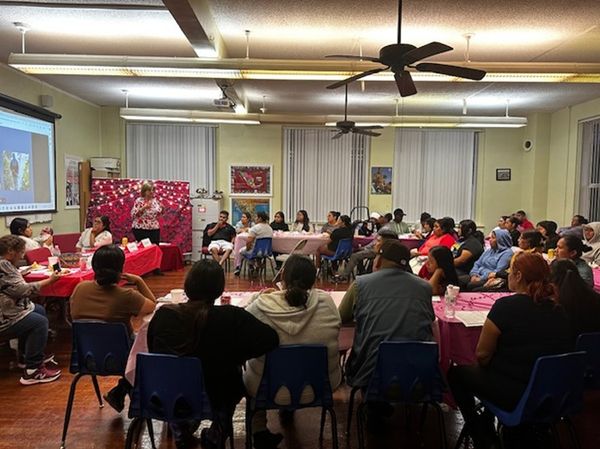Program Details
Project Goals
FWAF aimed to reduce farmworkers’ risk of pesticide exposure by strengthening awareness of core WPS protections and expanding the tools available to farmworker-serving organizations.
The project focused on three key objectives:
- Reinforce knowledge of essential pesticide safety practices
- Clarify complex elements of the WPS and expand understanding of farmworker rights
- Develop resources to support advocates and educators in the field
Highlights
- 322 farmworkers trained across five Florida communities
- 5 focus groups conducted to inform the content needed for the training materials
- 4 original videos produced in English and Spanish. Topics include: Application Exclusion Zone, Designated Representative, Restricted-Entry Interval, and Central Posting
- Video content distributed to over 10 regional and national farmworker-serving organizations
- Project showcased at the 2024 Agricultural Worker Health and Safety Symposium
What Made This Project Special
- Farmworker-Guided Content: Five focus groups shaped every script, scenario, and video topic. From the early drafts to the final edits, farmworkers' voices guided the project.
- Culturally Grounded Visuals: The project combined storytelling with whiteboard explainer techniques to ensure accessibility for workers with limited literacy or language barriers.
- Community-Centered Feedback: Every video was previewed by farmworkers across five Florida communities. Feedback emphasized that the language, tone, and imagery felt familiar and respectful.
- Realistic Scenarios: Whether navigating a Designated Representative request or understanding the shifting boundaries of an Application Exclusion Zone, the videos modeled conversations and challenges grounded in real-world experiences.
- Multi-State Reach: Though Florida-based, the project’s resources were distributed to organizations across the country — including United Farm Workers (UFW), Comité de Apoyo a Trabajadores Agrícolas (CATA), and the Farmworker Group of Migrant Clinicians Network — making the videos accessible to agricultural workers nationwide.
Evaluation Outcomes
- Over 300 farmworkers trained in person
- Five focus groups conducted across FWAF regions
- Videos reviewed and revised based on structured community feedback
- Project reach extended beyond Florida through national partnerships
- Training and video content presented to stakeholders at a national symposium
Links to Videos
We are pleased to share the videos developed:
- Re-entry Interval/Intervalo de Reentrada (click here)
- Central Posting Area/Cartelera Central (click here)
- Designated Representative/Representante Designado (click here)
- Application Exclusion Zone/Zona de Exclusion de Aplicacion (click here)
PERC thanks the Farmworker Association of Florida
PERC congratulates the Farmworker Association of Florida on the successful completion of this project. Through a thoughtful and community-led approach, FWAF produced high-quality training materials that strengthen pesticide safety awareness and expand access to critical WPS information across the agricultural workforce.
View More
View Less
View More
View Less
View More
View Less

Stay up-to-date with our AgCBP Program
Sign up for news and updates!
